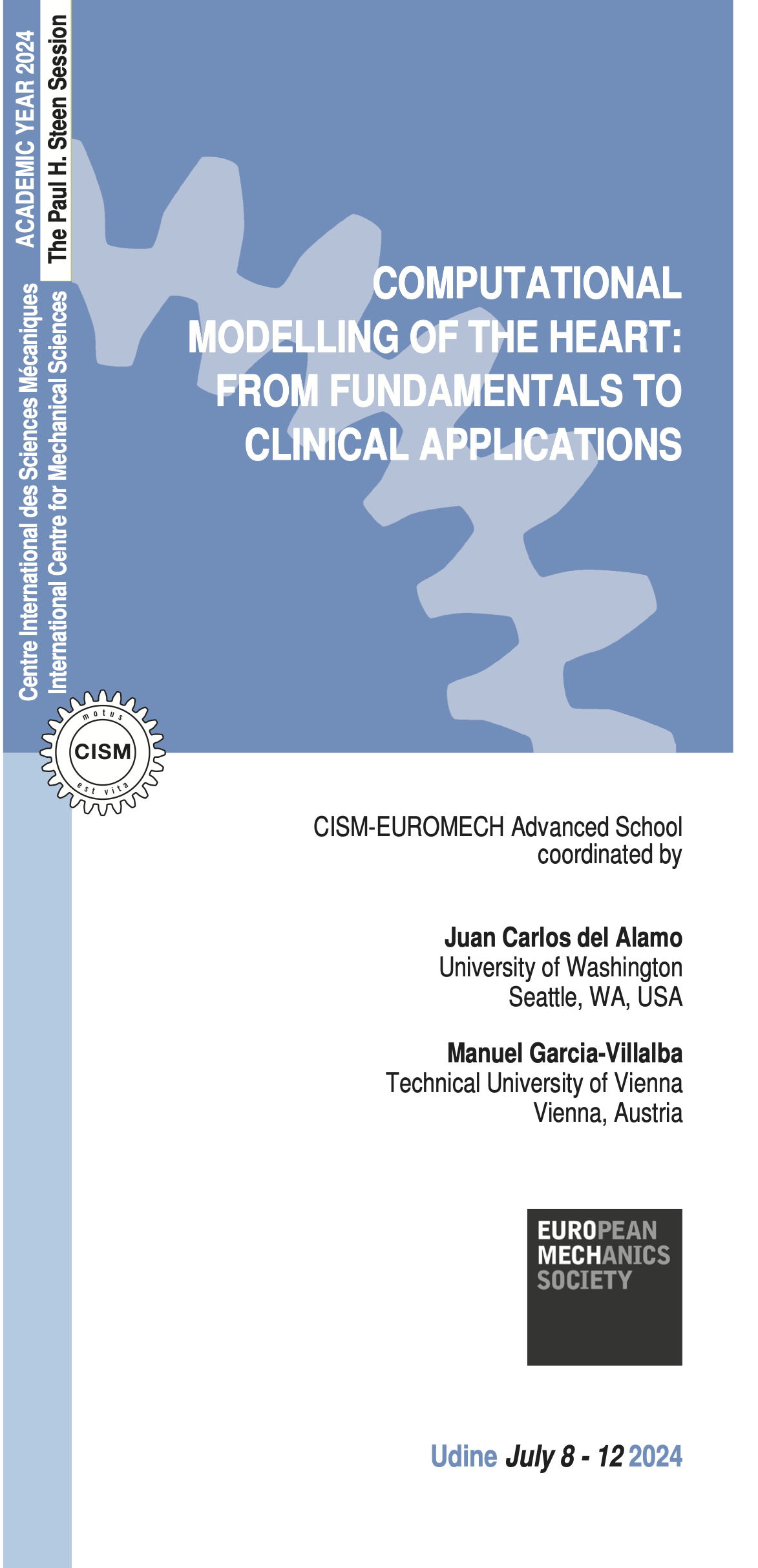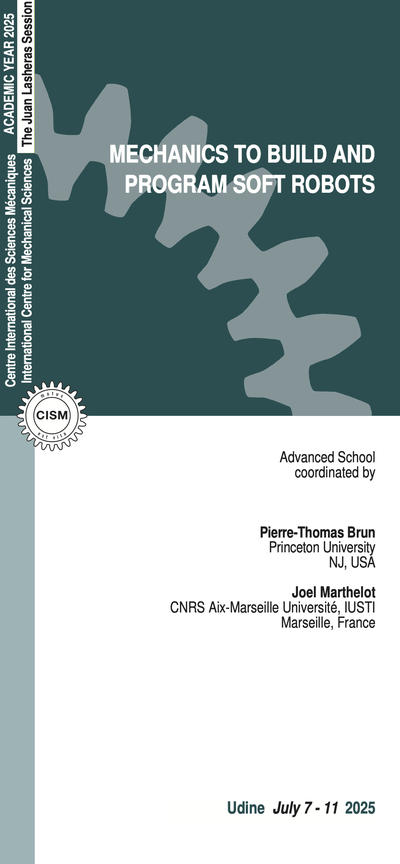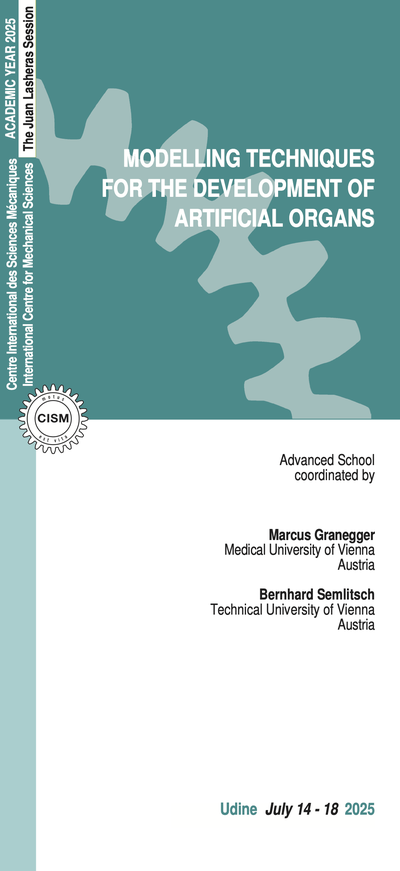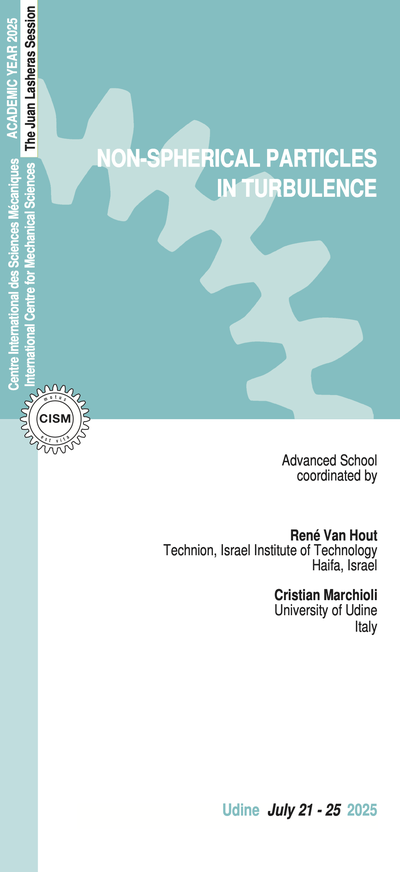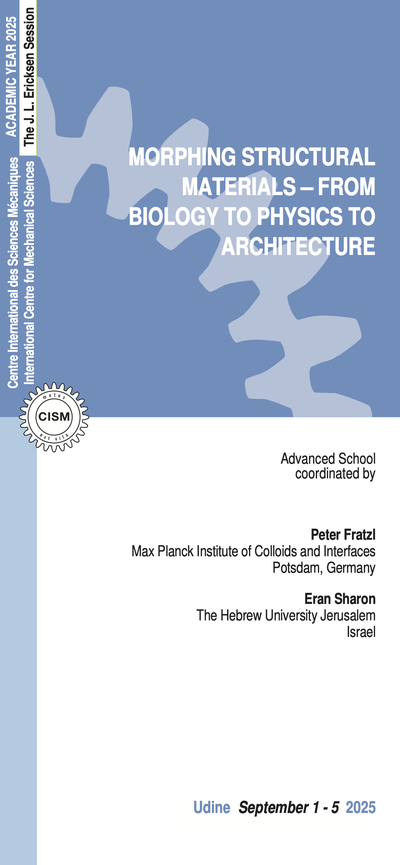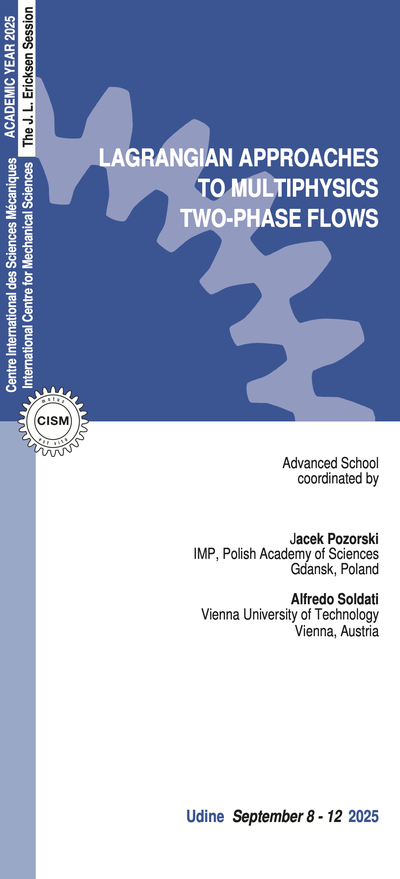Recent progress in the fields of computational modeling, data science, and artificial intelligence have shaken the landscape of cardiovascular research. In parallel, state-of-the-art medical imaging technologies now provide streams of patient data of unprecedented volume and detail. The convergence of these advances with the growth in processing power and communication infrastructure has made it possible to run patient-specific models of high fidelity or in large numbers, and empowered inter-disciplinary collaborations that are accelerating further developments of multi-scale, multi-physics models.
These synergies are driving a revolution in cardiovascular science by offering increasingly realistic digital twins to investigate disease mechanisms, facilitate medical device design and implantation planning, search for therapeutic targets, and improve diagnosis. However, the translation of computational advances to improve clinical decision support systems also faces significant challenges. It is necessary to be able to handle and manage vast amounts of data, coming from various sources and with different formats. Running patient-specific models with high fidelity requires significant computational resources. The development of multi-scale and multi-fidelity models requires significant integration efforts. Furthermore, the models need to represent the intricacies of the cardiovascular system by parameters that are often difficult to measure. Before clinical support systems can be implemented, rigorous validation against real-world clinical data is required. Other challenges are related to regulation, ethics or gaining the trust in the models of healthcare professionals, such as doctors and nurses, among others. Overcoming these challenges is essential to realize the full potential of current cardiovascular research and requires a new generation of scientists trained in all these aspects.
This course will review core competencies and novel developments in cardiac computational modeling. Particular attention will be given to multi-physics, multi-scale model development, digital twins and model-aided patient phenotyping, incorporating patient-specific data beyond vessel or chamber geometry, and simulation pipeline automation and integration into clinical decision support systems. The course curriculum will cover fundamental topics in cardiac biomechanics and state-of-the-art modeling techniques. It will also discuss machine learning and AI tools for image analysis and provide examples of computational models adopted into clinical decision support systems.
The course is aimed at graduate students of applied sciences and engineering interested in all aspects of cardiac bio-electro-mechanics, including imaging and computing. Researchers specializing in one field (e.g., electrophysiology) interested in branching out to other areas (e.g., fluid-structure interaction) are also welcome to attend this course. The course will feature poster sessions to spark cross-disciplinary communication among participants.
C. M. Augustin et al. Anatomically accurate high resolution modeling of human whole heart electromechanics: A strongly scalable algebraic multigrid solver method for nonlinear deformation. J. Comput. Phys. 305 (2016): 622–46.
J. Bermejo et al. The clinical assessment of intraventricular flows. Annu. Rev. Fluid Mech. 47 (2015): 315-342.
P. M. Boyle et al. Towards personalized computational modelling of the fibrotic substrate for atrial arrhythmia. Europace. 2016; 18(suppl 4):iv136-iv145.
C. Chen et al. Deep learning for cardiac image segmentation: A review, Frontiers Cardiovasc. Med., 7, 2020.
J. Corral-Acero et al. The ‘Digital Twin’ to Enable the Vision of Precision Cardiology. European Heart J. 41 (2020): 4556–64.
D. Dey et al. Artificial intelligence in cardiovascular imaging. J Am Coll Cardiol. 2019, 73 (11) 1317–1335.
K. Gillette et al. A framework for the generation of digital twins of cardiac electrophysiology from clinical 12-leads ECGs. Med. Image Anal. 71 (2021): 102080.
R. Mittal et al. Computational modeling of cardiac hemodynamics: Current status and future outlook. J. Comput. Phys. 305 (2016): 1065-1082.
G. Plank et al. The openCARP simulation environment for cardiac electrophysiology. Comput Methods Programs Biomed. 2021;208:106223.
B. N. Roberts et al. Computational approaches to understand cardiac electrophysiology and arrhythmias. Am J Physiol Heart Circ Physiol. 2012;303(7):H766-83.
A. Santos, M. J. Ledesma-Carbayo. Cardiac imaging. In: Wiley Enc. Biomed. Eng., 2, 743-754. M. Akay (Ed.), 2006.
A. Quarteroni et al. Integrated Heart—Coupling multiscale and multiphysics models for the simulation of the cardiac function. Comput. Meth. Appl. Mech. Eng. 314 (2017): 345–407.
R. Verzicco. Electro-fluid-mechanics of the heart.
6 lectures on: Cardiovascular Tissue Biomechanics. Cardiac Electromechanics. Computational modeling techniques and finite element methods. Multi-scale, multi-physics simulations. Inverse modeling and statistical methods. Computational models in clinical settings.
6 lectures on: Place for engineers in cardiovascular medicine. The basics: anatomy and physiology of the cardiovascular system. An overview of cardiac diseases. In silico, pre-clinical and clinical cardiovascular research. Transferring R&D to the bedside.
6 lectures on: Cardiac electrophysiology overview. Cell-Scale: Ion channels, action potentials, and calcium handling. Tissue-Scale: Gap junctions, impulse propagation, and anisotropy. Arrhythmia: ectopic beats, reentry, and fibrillation. Interventions: drugs, catheter ablation, and defibrillation.
6 lectures on: Biophysics of cardiomyocytes and extracellular matrix. Physics-informed cardiac flow imaging. Cardiac thrombosis and embolism. Reduced order models. Digital twins and model-assisted patient phenotyping. Simulating the nexus between ventricular/atrial biomechanics and thrombosis.
6 lectures on: Computational fluid dynamics. Immersed boundary methods. Fluid-structure interaction methods. High-performance computing. Verification, validation, uncertainty quantification. Cardiac valves.
5 lectures on: Cardiac medical imaging modalities (MRI, CT, ultrasound). Cardiac Image registration and segmentation.Motion estimation and compensation. Artificial Intelligence and cardiac image analysis. Image guided interventions and therapy.
ADMISSION AND ACCOMMODATION
The course is offered in a hybrid format, allowing participants the flexibility to attend either in person or remotely via the Microsoft Teams platform.
Limited spots are available for on-site attendance and will be allocated on a first-come, first-served basis.
The registration fees are:
- On-site participation: 600.00 Euro + VAT*
Includes a complimentary bag, five fixed menu buffet lunches, hot beverages, downloadable lecture notes.
Deadline for on-site application is June 8, 2024.
- Live Streaming Online Participation: 250.00 Euro + VAT*
Includes downloadable lecture notes.
Deadline for online application is June 26, 2024.
Application forms should be submitted online through the website: http://www.cism.it.
A confirmation message will be sent to accepted participants.
Upon request, a limited number of on-site participants can be accommodated at CISM Guest House at the price of 35 Euro per person/night (contact: foresteria@cism.it)
* where applicable (bank charges are not included) - Italian VAT is 22%.
CANCELLATION POLICY
Applicants may cancel their registration and receive a full refund by notifying the CISM Secretariat in writing (via email) no later than:
- June 8, 2024 for on-site participants (no refunds after the deadline);
- June 26, 2024 for online participants (no refunds after the deadline).
Cancellation requests received before these deadlines will be subject to a 50.00 Euro handling fee. Incorrect payments are also subject to a 50.00 Euro handling fee.
GRANTS
A limited number of participants from universities and research centres who do not receive support from their own institutions can request a waiver of the registration fee and/or free lodging.
Requests should be sent to the CISM Secretariat by May 8, 2024 along with the applicant's curriculum vitae and a letter of recommendation from the head of the department or a supervisor confirming that the institute cannot provide funding. Preference will be given to applicants from countries that sponsor CISM.
